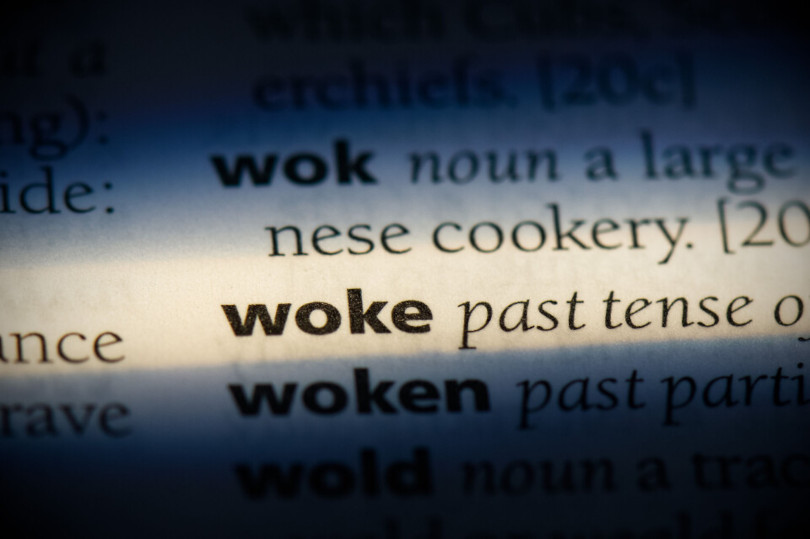In 1962, novelist William Melvin Kelley provided “a hip assist” to white New York Times readers by translating the black slang term “woke” as “well-informed, up-to-date.” Four decades later, singer-rapper-songwriter Erykah Badu revealed through her song “Master Teacher” that she “stay[s] woke,” and implored her audience to do the same. The early 2010s saw the phrase and its hashtag, “#staywoke,” gain traction following the murder of Michael Brown, a Black eighteen-year-old. Both appeared frequently online and at protests involving the young Black Lives Matter movement. In 2017, following the election of a U.S. president known for vilifying Black Lives Matter, and who’s even gone so far as to take issue with the statement itself, the Oxford English Dictionary and Merriam-Webster responded to the term’s growing cultural relevance by expanding their definitions of “woke” to include its connection to ongoing discussions of social justice. What was once simply the past tense of “wake” became officially recognized as an antiracist watchword.
In 2020, a string of highly publicized racially motivated murders including those of George Floyd, Breonna Taylor, and Ahmaud Arbery further argued the essentiality of “wokeness,” a point underscored by protesters in the resulting unrest. Reminders to stay woke and that Black Lives Matter flooded American streets and continue to. It shouldn’t need to be said that there is nothing controversial or inflammatory about being woke to the people in those streets—it is simply a survival tactic. A response to reality. Others feel that it’s quite the opposite.
President Donald Trump, similarly far-right Republicans (particularly Florida Governor Ron DeSantis), and a great deal of the country will have none of what wokeness has to offer. DeSantis, who has denounced it as “philosophical lunacy,” and even signed legislation meant to protect Floridians from what he calls “woke indoctrination,” apparently sees himself as one of the last lines of defense against an unparalleled threat to the American way. The word’s political dissidents have distorted its meaning so profoundly that dictionaries have again had to modify their definitions. Merriam-Webster, in addition to “aware of and actively attentive to important societal facts and issues (especially issues of racial and social justice),” now also defines “woke” as liberal “in a way that is considered unreasonable or extreme.” In the critic’s view, to be woke is to be a woefully delusional, virtue-signaling, potentially communist, un-American traitor. Rather than a response to reality, it’s a commitment to unreality.
As I’ve said, defenders of wokeness, a descriptor which means nothing more than “people frustrated by social injustice,” find nothing unreasonable or extreme in it. After all, to be woke only means to practice a potentially life-saving vigilance. What is unreasonable about longing to live? Surely we haven’t reneged on the inalienability of the rights to life, liberty and the pursuit of happiness. And if so, what could possibly be more un-American than that? Still, the fact remains that some members of the anti-woke crowd even believe that it is only they who are truly oppressed, for they’re the targets of the far-reaching fantastical scourge of “woke supremacy.”
In a sense, I actually agree that there is substance to their claims of oppression: not by “woke supremacy,” but by the bad faith arguers (Republicans, white supremacists, etc.) for that fictitious evil’s existence. In this, both sides of the wokeness debate are alike, and I’d like to think that we wouldn’t be at each other’s throats so often if this commonality were recognized. For then we’d both know that only in wokeness’ absence can one find reason to vilify it.
Featured image courtesy of Casimiro PT/Shutterstock.


